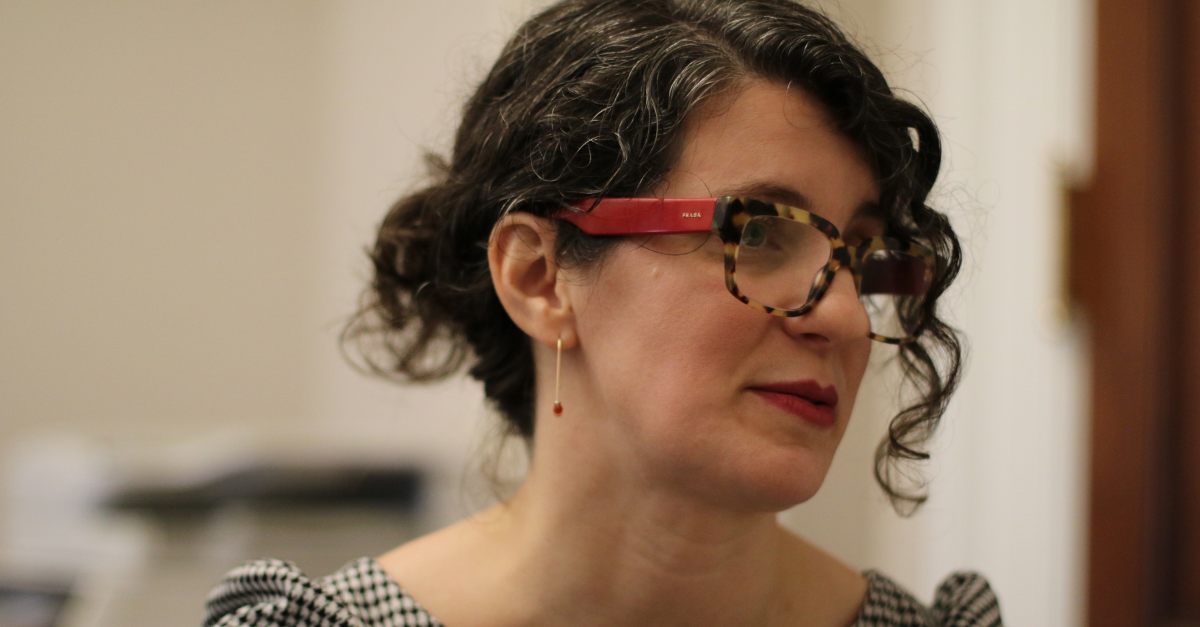
Our Nurse Home Visitors work alongside their clients to provide the best quality care using their nursing expertise, and connecting clients with our legal and professional partners, as well as resources within the clients’ own communities. Sometimes issues arise that have no clear solution, issues that are caused by systems-level barriers.
Joy Ahn, our Nurse Advocacy Manager, dedicates her time to systems-level change. She orients her work around the experiences of the home visiting nurses and clients to meaningfully inform public policy. At NNCC, she has created a system to collect client and nurse stories reflecting barriers to health and/or strategies to improve health and well-being.
As a former Nurse Home Visitor with our Philadelphia Nurse-Family Partnership program, Joy experienced first-hand the power of translating client experiences into advocacy. She shared her vision and method of systems-level advocacy at StartEarly's 2024 National Home Visiting Summit in Washington, D.C.
Using the development of the Coalition for Lactation-Friendly Schools as an example, Joy shared her advocacy method:
1. Identify the problem
As a Nurse Home Visitor, Joy had numerous clients who were forced to choose between continuing their education and breastfeeding their child. One client was told by their principal that they were not allowed to pump milk in school. Another client was told their grades would be adversely affected if they were late to class due to pumping.
2. Investigate and research
Joy found evidence that parents who continued to breast/chest-feed beyond six weeks reported significant emotional, informational, and instrumental support from family, friends, school, and their babies. (Wambach, et al, 2009).
3. Inquire where there is support
Joy spent time researching states that supported students and their goals to continue lactation. At the time she first looked into it, there were two states with legislation supporting lactating students: Virginia and California. Since then, other states have joined that group, including Nebraska, Illinois, Maryland, and Arkansas.
4. Identify who is in power
Joy learned from her time with clients and her research that legislative advocacy was the best way forward. Opportunities for change started locally and continued at the state and federal level. The power reached the PA House of Representatives and advocates within the US Breastfeeding Committee.
5. Intentionally form or find a network
After years of looking for an open window in related meetings, Joy was eventually connected with two other people interested in advocating for parenting students. The conversation grew from connections with the Food Trust and Women’s Law Project, to collaborating with Maternity Care Coalition, the Education Law Center, the Philadelphia Department of Public Health, the School District of Philadelphia, and others. Together, they formed the Coalition for Lactation-Friendly Schools.
6. Inform the policymakers
The Coalition for Lactation-Friendly Schools’ advocacy took many forms. They spoke with local media and wrote an op-ed, educated the public and legislators at community events, created model legislation, informed Representative Isaacson’s bill in the PA House (2019, 2021, 2023), and were awarded Advocate of the Year 2020 by PRO-LC.
7. Support next steps
Joy and the Coalition for Lactation-Friendly Schools know that the work doesn’t end when a bill is introduced or even once passed. They continue to inform stakeholders and legislators, conduct surveys of current school lactation policies, and organize supporters through targeted outreach like sign-on letters. They continue to cultivate varied subject matter expertise through their affiliated organizations and identified a fiscal sponsor to facilitate external support for education and advocacy related to lactating students.
The Power of Public Health Workers
When systems-level barriers repeatedly prevented Joy from providing the best care to her clients, she recognized that she needed to advocate upstream. Joy stepped up to the challenge by collecting as much data and information as possible, identifying who holds the power to enact change, intentionally forming a powerful network of advocates, and making their voices heard throughout the state. This system of identifying and working to solve ‘puzzling policies’ is not a skill only Joy holds - anyone can be an advocate.
Joy, a public health nurse and change agent, envisions a country where everyone who works in public health realizes their power to share their knowledge from boots-on-the-ground work to impact positive change in their organizations, their towns, their states, and their country. She truly believes that anyone can be an advocate on any level - all it takes is a phone call. Your story matters, and your experience is important and valid. If you see something that is not working and think, ‘Someone should do something about that,’ that someone might just be YOU.
NNCC Advocacy: Championing Nurse-Led Care
Keep up to date with NNCC and the policy team in action.
LATEST NEWS
16 January 2026
[vimeo url="https://vimeo.com/224661494" width="640" height="360"] Nursing-Legal Partnership: a Precursor...
23 October 2023
In February 2021, the National Nurse-Led Care Consortium (NNCC) partnered with this Centers for Disease...
STAY CONNECTED TO NURSE-LED CARE

